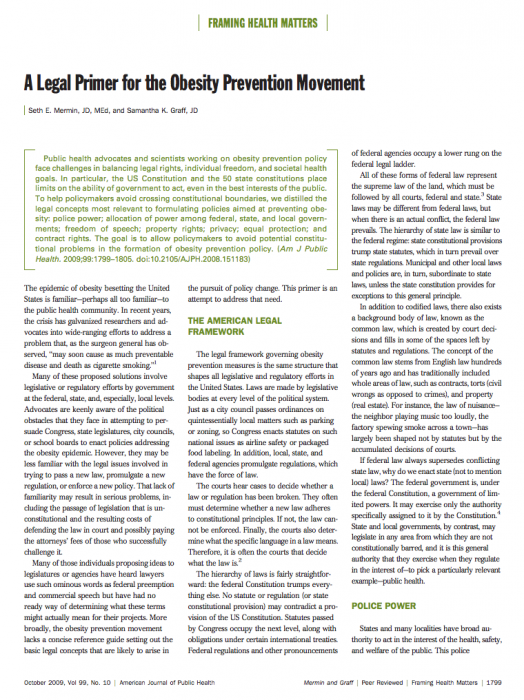Public health advocates and scientists working on obesity prevention policy face challenges in balancing legal rights, individual freedom, and societal health goals.
In particular, the US Constitution and the 50 state constitutions place limits on the ability of government to act, even in the best interests of the public. To help policymakers avoid crossing constitutional boundaries, we distilled the legal concepts most relevant to formulating policies aimed at preventing obesity: police power; allocation of power among federal, state, and local governments; freedom of speech; property rights; privacy; equal protection; and contract rights. The goal is to allow policymakers to avoid potential constitutional problems in the formation of obesity prevention policy.

